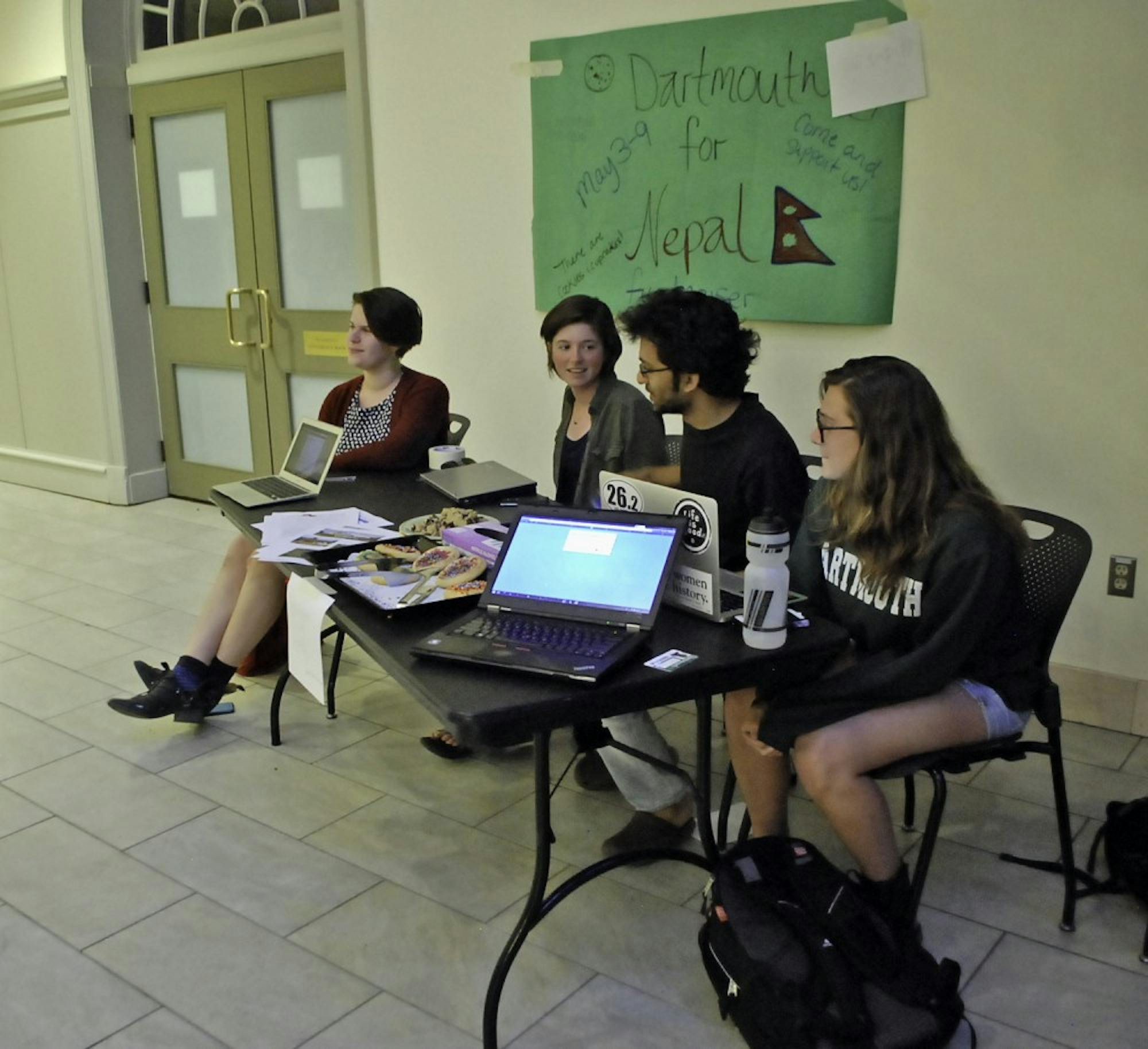In the wake of the April 25 Nepal earthquake, which has killed more than 7,000 people and has flattened entire villages and cultural sites, members of the Dartmouth community have founded the Dartmouth for Nepal organization.
South Asian Student Association president Raunak Bhojwani ’18 started talking with his peers about mobilizing support efforts, and within a week, more than 100 people from the Dartmouth and the Upper Valley communities met to discuss aid efforts.
The fact that the Dartmouth community raised over $1.5 million in aid after the Haiti earthquake five years ago showed the College’s potential influence, Bhojwani said. He added that his two main goals are to increase awareness of the disaster and raise money for those in Nepal.
On the day of the Nepal earthquake, Pawan Dhakal ’16 woke up to a number of wishes and concerns from friends, professors and College staff members. Dhakal said that the support he received represents a larger community effort to support Nepal and all those who have been affected.
“It is hard to connect to a place that is thousands of miles away, but as a community of learners, especially as a community that believes in liberal arts education, every one of us should be expected to know about the world outside of Dartmouth and think critically about all the issues...that matter to the rest of the world even if they don’t matter to us,” Dhakal said.
In the past weeks, Dhakal has been working with Dartmouth for Nepal to brainstorm fundraising ideas.
“We have a vision of connecting Dartmouth and the Upper Valley communities to Nepal for the long run by working projects focused on providing community to community education, cultural understanding and outreach through experiential learning,” he said.
Students have also been fundraising in high-traffic areas like Novack and Collis Cafes since Sunday — an effort that Bhojwani said has been very effective for increasing awareness.
“Once [students] become aware, then they start seeing it everywhere,” he said. “And I think that’s the first thing we need to achieve. We want people to know that this has happened.”
Former South Asian Student Association president Kishan Ughreja ’15 said these efforts will continue for the next three weeks.
He added that many of his Nepali friends at Dartmouth plan to return to Nepal to help out as soon as they can.
Dickey Center for International Understanding program manager of human development initiatives, Kenneth Bauer said he feels intimately invested in mobilizing support for Nepal because of the time he has spent there for both personal and professional reasons. He also met his wife, anthropology professor Sienna Craig, in Nepal.
“In terms of the earthquake, [my involvement] is kind of a necessary and basically natural response to what’s happening over there,” Bauer said.
Like Bauer, Thayer School Ph.D. candidate Aditya Mahara said he was closely affected by news of the earthquake. Born and raised in Nepal, Mahara worked with Craig to mobilize student support and develop Dartmouth for Nepal.
Carly Carlin ’15, who spent part of her Sunday evening fundraising in Novack, said that her interest in global health and international development naturally feeds into her desire to support Nepal.
“I just think when something bad in the world happens, it’s our obligation to do something to help,” Carlin said. “Especially for these natural disasters that happen really far away, a lot of the times they’re covered in the news for a week or two and then they’re swept away.”
Although no definitive plan is in place, the Dartmouth community will likely focus more on long-term relief efforts than short-term support, owing to the current and existing network of on-the-ground organizations in Nepal, Bauer said.
“With respect to Nepal, specifically, a lot of people just do have a connection to that place,” Bauer said. “If you look in the Upper Valley or even in the Dartmouth community, I would venture that there are literally hundreds of people who have been to Nepal and have some sort of affection.”
Several organizers said that they are optimistic about how people will respond to support Nepal.
With support from the provost’s office, Dhakal and Mahara created the Dartmouth for Nepal organization’s webpage, through which support efforts will be coordinated.




